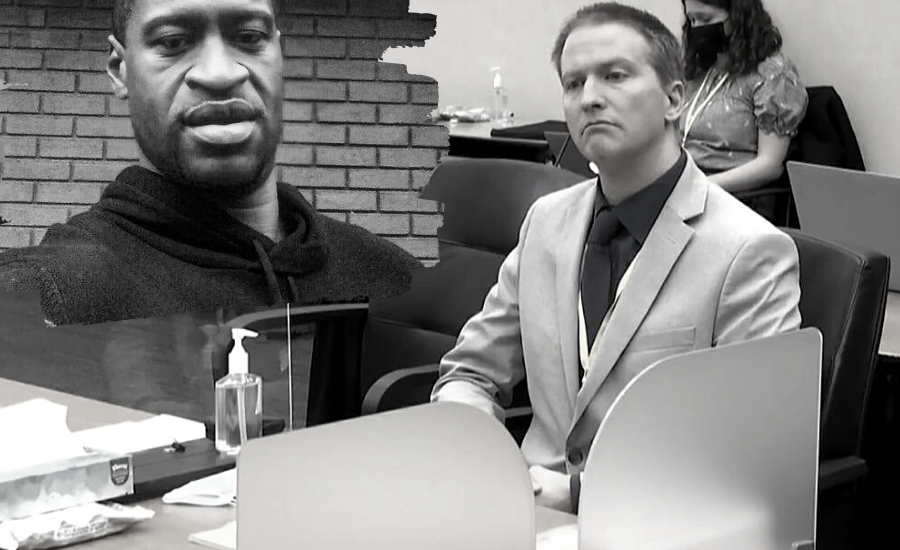Ex-cop Derek Chauvin guilty of murder and manslaughter for cruel murder of George Floyd
Former cop Derek Chauvin has been convicted of murder and manslaughter (Credit: AP/EEW Magazine)
MINNEAPOLIS (AP) — The jury reached a verdict Tuesday at the murder trial of former Officer Derek Chauvin in the death of George Floyd, the Black man who was pinned to the pavement with a knee on his neck in a case that set off a furious reexamination of racism and policing in the U.S.
The ex Minneapolis cop has been convicted of murder and manslaughter. The jury reached its verdict Tuesday after deliberating about 10 hours over two days in a city on edge against another outbreak of unrest.
The courthouse was ringed with concrete barriers and razor wire, and thousands of National Guard troops and law enforcement officers were brought in ahead of the verdict. Some businesses boarded up with plywood.
Floyd died last May after Chauvin, a 45-year-old now-fired white officer, pinned his knee on or close to the 46-year-old Black man’s neck for about 9 1/2 minutes as Floyd gasped that he couldn’t breathe and onlookers yelled at Chauvin to get off.
The jury, made up of six white people and six Black or multiracial people, weighed charges of second-degree unintentional murder, third-degree murder and second-degree manslaughter in a city that has been on edge in recent days — not just over the Chauvin case but over the deadly police shooting of a 20-year-old Black man, Daunte Wright, in the nearby Minneapolis suburb of Brooklyn Center on April 11.
For all three charges, prosecutors had to prove that Chauvin caused Floyd’s death and that his use of force was unreasonable.
Prosecutors didn’t have to prove Chauvin’s restraint was the sole cause of Floyd’s death, but only that his conduct was a “substantial causal factor,” since Chauvin was authorized to use force as a police officer, as long as that force was reasonable.
To convict on any of these counts, jurors had to find that Chauvin used a level of force that would be considered unreasonable to an objective officer in his position. Hindsight could not be a factor.
Each count carries a different maximum sentence: 40 years for second-degree unintentional murder, 25 years for third-degree murder, and 10 years for second-degree manslaughter.
But under Minnesota sentencing guidelines, for a person with no criminal history, each murder charge carries a presumptive sentence of 12 1/2 years in prison, while manslaughter has a presumptive sentence of four years.
Prosecutors are seeking a sentence that goes above the guideline range. They cited several aggravating factors, including that Floyd was particularly vulnerable, that Chauvin was a uniformed police officer acting in a position of authority, and his alleged crime was witnessed by multiple children — including a 9-year-old girl who testified that watching the restraint made her “sad and kind of mad.”
Chauvin has waived his right to have a jury decide if aggravating factors exist. Therefore, Judge Peter Cahill will make that decision and will sentence Chauvin at a later date. In Minnesota, defendants typically serve two-thirds of their penalty in prison, with the rest on parole.





Black Christians face pain and hope as D.C. removes Black Lives Matter Plaza, sparking faith and reflection on justice.